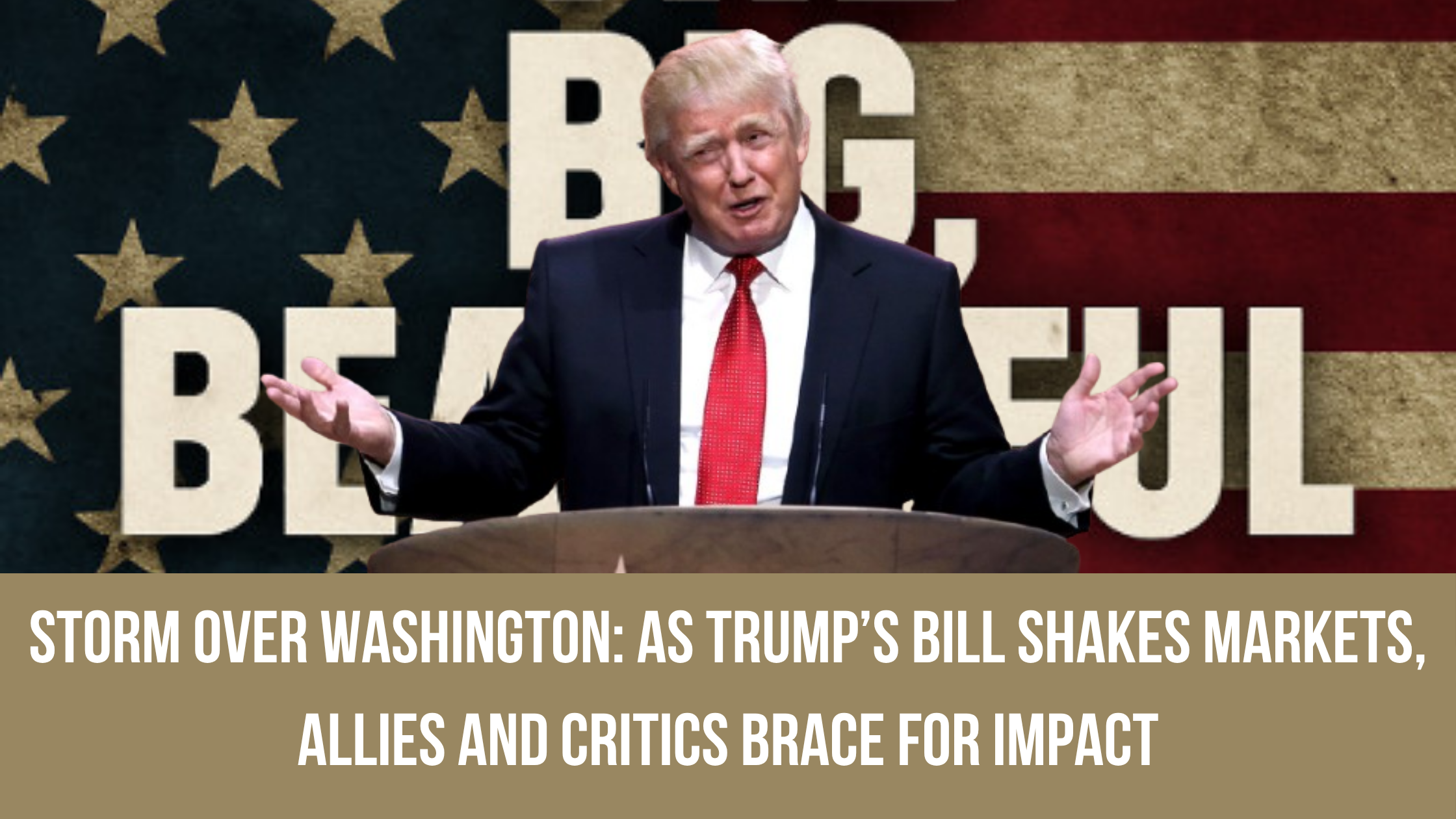NEW DELHI — In a political climate already charged with division, President Donald J. Trump’s proposed spending package—branded by the White House as the “One Big Beautiful Bill”—has stirred unusually fierce opposition, not only from Democrats but increasingly from Republican lawmakers and corporate leaders once considered allies.
Unveiled last month, the sweeping bill promises significant tax cuts, expanded infrastructure spending, and new incentives for domestic manufacturing. But it also proposes deep reductions in federal aid programs and is projected by independent analysts to add more than $2.4 trillion to the national debt over the next decade.
At the heart of the backlash is a growing perception that the bill disproportionately benefits the wealthiest Americans and major corporations while threatening the social safety net and long-term economic stability.
A Rift with Musk Widens
Among the most high-profile critics is Elon Musk, the billionaire CEO of Tesla and SpaceX, who was once a key Trump confidant. Mr. Musk publicly denounced the bill in a series of posts on X (formerly Twitter), calling it “a disgusting abomination” and warning that it would “destroy fiscal discipline in this country.”
Tesla’s stock responded sharply. Investors, wary of increased political risk and reduced access to clean energy subsidies, wiped more than $150 billion off the company’s market capitalization within 48 hours.
The falling-out between the two men has been both personal and public. In a recent rally in Pennsylvania, Mr. Trump mocked Musk’s wealth, suggesting he was “overrated” and hinting at possible federal reviews of Tesla contracts. “Nobody gets rich without us,” Mr. Trump said.
Discontent in Republican Ranks
While Democrats have largely lined up in opposition, arguing that the bill amounts to a handout to the rich, some Republican lawmakers are also expressing unease.
Representative Rob Wittman of Virginia, who previously spoke against adding to the deficit, voted for the bill despite provisions that weaken Medicaid and eliminate certain nutrition assistance programs. Critics accused him of reversing course to secure tax benefits embedded in the legislation.
Others have been more direct. “This is not what we promised our voters,” said Senator Lisa Murkowski of Alaska. “They asked for accountability, not accounting gimmicks.”
Voices of Dissent Grow Louder
Beyond Congress, a chorus of economists, union leaders, and former officials has emerged in opposition.
“Trump’s bill is a fiscal grenade,” said Senator Elizabeth Warren, Democrat of Massachusetts. “It doesn’t just blow up the deficit—it blows up what little trust the American people have left in this government.”
“This isn’t conservative governance,” said former Republican Representative Adam Kinzinger. “It’s chaos dressed up as tax reform.”
Elon Musk added that the bill “rewards incompetence and punishes innovation,” arguing that government funds would be better spent on education, clean energy, and long-term R&D.
Sara Nelson, president of the Association of Flight Attendants, was more direct: “Working families get crumbs, billionaires get buffet service. That’s what this bill represents.”
Uncertainty on Wall Street
On Wall Street, the response has been cautious but increasingly concerned. Moody’s Investors Service issued a formal warning that the bill, if passed without offsets, could lead to a future downgrade of U.S. sovereign debt. The Dow Jones Industrial Average fell more than 800 points this week amid concerns about rising interest rates and inflationary pressures.
Large-cap technology and energy firms—many of which benefited from green energy incentives and federal research grants—are now reassessing their exposure.
“Markets don’t like debt without discipline,” said Janice Liu, chief economist at StratEdge Capital. “This bill piles on spending while weakening key regulatory guardrails. Investors are worried.”
A Defining Moment
With midterm elections approaching and impeachment chatter rising over separate controversies, the “Big Beautiful Bill” may yet become a defining moment of Trump’s second term. Its path through the Senate remains uncertain, especially with a few moderate Republicans signaling reluctance.
In the meantime, activists have taken to the streets under the banner of the #Reject50501 movement, calling for a bipartisan alternative that protects essential services while stimulating growth.
Whether the bill becomes law or not, one thing is clear: it has redrawn battle lines in Washington, exposed new fault lines in the Republican Party, and cast long shadows over America’s fiscal future.

